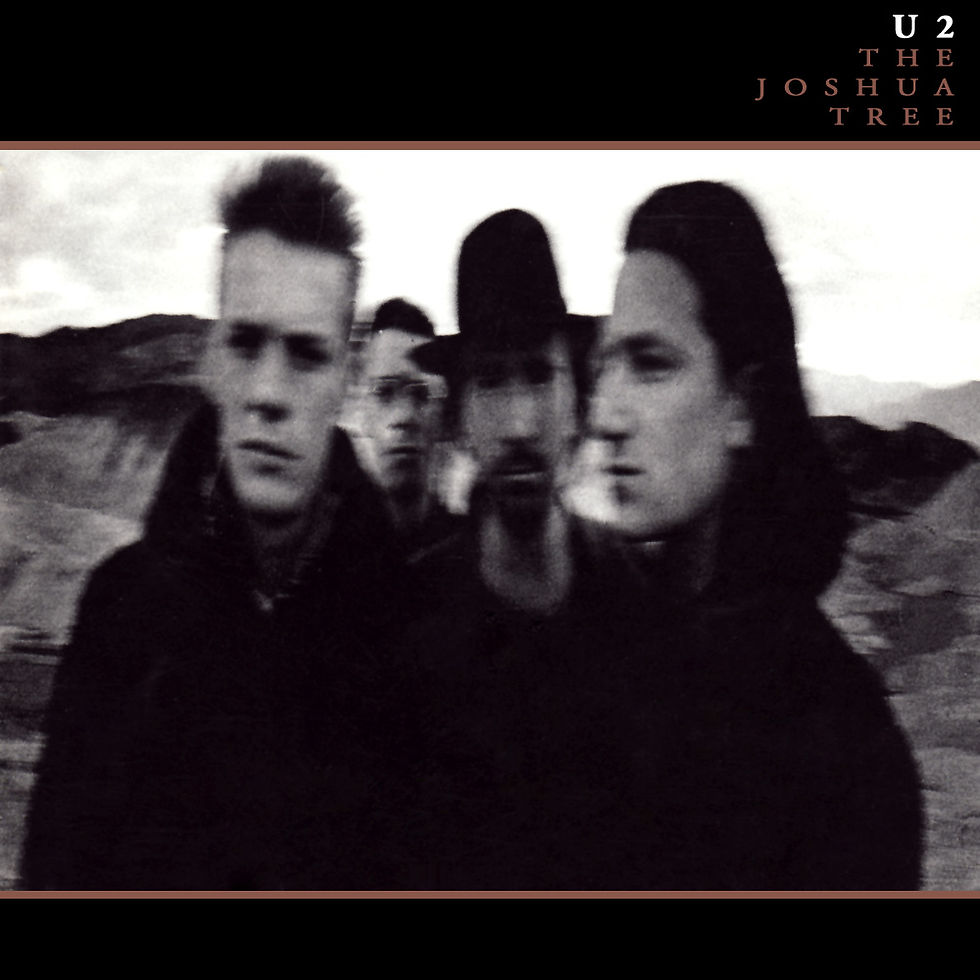U2 - The Unforgettable Fire
- FaceOff - עימות חזיתי

- Oct 1, 2025
- 3 min read
On October 1, 1984 "U2" released their 4th album "The Unforgettable Fire".

The album marked a significant evolution in "U2’s" sound, showcasing a more atmospheric and experimental approach compared to their previous work. The band wanted to pursue a new musical direction following the harder-hitting rock of their previous album, "War". Collaborating with producers Brian Eno and Daniel Lanois, the band moved away from the raw, anthemic rock that defined "War" and embraced more textured, ambient elements that gave the album a dreamlike, cinematic quality.
"The Unforgettable Fire" marked "U2's" biggest musical shift, featuring a richer, more orchestral sound and their first album with a cohesive feel. Under Daniel Lanois' guidance, Larry Mullen Jr.'s drumming became looser and more refined, while Adam Clayton's bass playing flowed more smoothly, giving the rhythm section a more fluid presence.
The album’s opener, "A Sort of Homecoming," highlights "U2's" shift in sound, replacing the militaristic drumming of "War" with more refined rhythms and featuring less prominent bass guitar in the mix. The song immediately sets the tone for the record’s more expansive sonic palette. The Edge’s guitar work is less about sharp riffs and more about creating a swirling, echo-laden backdrop, while Bono’s vocals take on a more introspective, reflective quality. It's interesting to note, that a live version of the track is found on 1985's four-track EP, "Wide Awake in America", which we think is even better than the album version.
The title track, “The Unforgettable Fire,” encapsulates the album's essence: it’s both haunting and hopeful, with lyrics inspired by the devastation of Hiroshima and the desire for peace. The track builds in intensity, riding on Adam Clayton’s melodic bassline and Larry Mullen Jr.’s driving percussion, as the band explores the balance between despair and redemption with ambient and orchestral sounds. The song originated from a short piano composition by The Edge during a demo session with Jimmy Destri of "Blondie". Although written without a specific purpose, The Edge saw it as a potential film soundtrack piece.
Perhaps the album's most iconic song is “Pride (In the Name of Love),” a tribute to Martin Luther King Jr. The song’s soaring melody and passionate vocal performance make it one of "U2’s" most enduring anthems, blending the band's political consciousness with their newfound atmospheric sound. The Edge’s signature guitar work, which blends chiming, echo-laden riffs with a driving rhythm is amplified by Bono’s powerful vocals. The melody and the chords were improvised in November 1983 during a soundcheck the band made before a show in Hawaii.
Other tracks like “Bad” which was written about heroin addiction, showcase the band’s ability to channel raw emotion into an expansive, meditative song structure. With its minimalistic beginnings, "Bad" slowly crescendos into an emotional high, making it a staple of "U2's" live performances. Here too, a live version of the song appears on "U2's" 1985 EP "Wide Awake in America", when this rendition became even more popular on radio stations. "U2's" performance of the song during Live Aid 1985 became one of the show's most memorable moments when Bono jumped off stage to hug and dance with a fan during a 12-minute rendition of the song. Though the extended performance caused them to drop one song from their setlist, it marked a breakthrough moment for the band.
Eno’s influence is particularly felt on tracks like “MLK,” a sparse and ethereal lullaby akso dedicated to Martin Luther King Jr., “Elvis Presley and America,” which blends stream-of-consciousness lyrics with a hypnotic, freeform arrangement and of course the ambient instrumental "4th of July" which came about almost entirely through a moment of inspiration from Eno, when at the end of a studio session, Eno pushed the record button when he heard Clayton improvising a simple bass figure. These songs, though more abstract, contribute to the album’s overall mood of searching and introspection.
True, "The Unforgettable Fire" may not have the consolidation and uniformity that "U2" was able to bring with "War", but its depth and ambition set the stage for the band’s later achievements. The album was a bold step forward, cementing "U2" as artists willing to take risks, and laying the groundwork for their masterpiece "The Joshua Tree".
In essence, "The Unforgettable Fire" is an album that shows "U2’s" growth as musicians and songwriters. Its atmospheric soundscapes, politically charged lyrics, and willingness to experiment made it a pivotal moment in their career, setting them on the path to becoming one of the most influential bands of their generation.
For Listening: Spotify, Apple Music













Comments